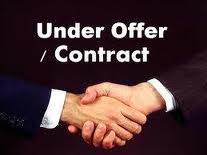Pricing a Business
 What do sellers want when they sell their business? The best possible price of course (in cash)! The seller wants to be compensated for all their years of hard work developing a strong business. But what is the true value of the business?
What do sellers want when they sell their business? The best possible price of course (in cash)! The seller wants to be compensated for all their years of hard work developing a strong business. But what is the true value of the business?
The company may have trademarks, patents, and other unique aspects to their business. It may have a well diversified customer base in a growing industry, and have a great management team. The financial statements of the business might be complete and flawless with no seller personal expenses included. The business owner doesn’t have to sell immediately, and the business is hugely profitable. (There are more variables, but this is a start, and this sounds like a terrific business!)
Much like in real estate where the broker takes many variables into consideration to ascertain a value, Business Brokers and M&A Advisors look at many variables to derive a logical market price for a given business. However, variables can change as the process goes on, like seller motivation and revenue trends, so prices can change up or down as well. By the way, a professional third party valuation can be a great tool to determine a price if a seller wants an unbiased review. (See our Blog from April).
Given the above comments, the marketplace allows a seller a certain price for their business – The real value being whatever deal is accepted between a willing buyer and willing seller. Motivation plays a big part in the ultimate price negotiations, as well as supply and demand. By the way, the SBA requires banks to have independent business appraisals performed on business deals over $350,000, so proper pricing is critical.
Just like an overpriced home, a business that is priced too high can languish for a long time on the market and eventually invite negative views as to why it hasn’t sold.
Talk to your Apex Business Advisor to get an honest review of your business and its value.

 When is it appropriate for a potential business buyer to ask for details of the seller beyond financial statements and tax returns?
When is it appropriate for a potential business buyer to ask for details of the seller beyond financial statements and tax returns?